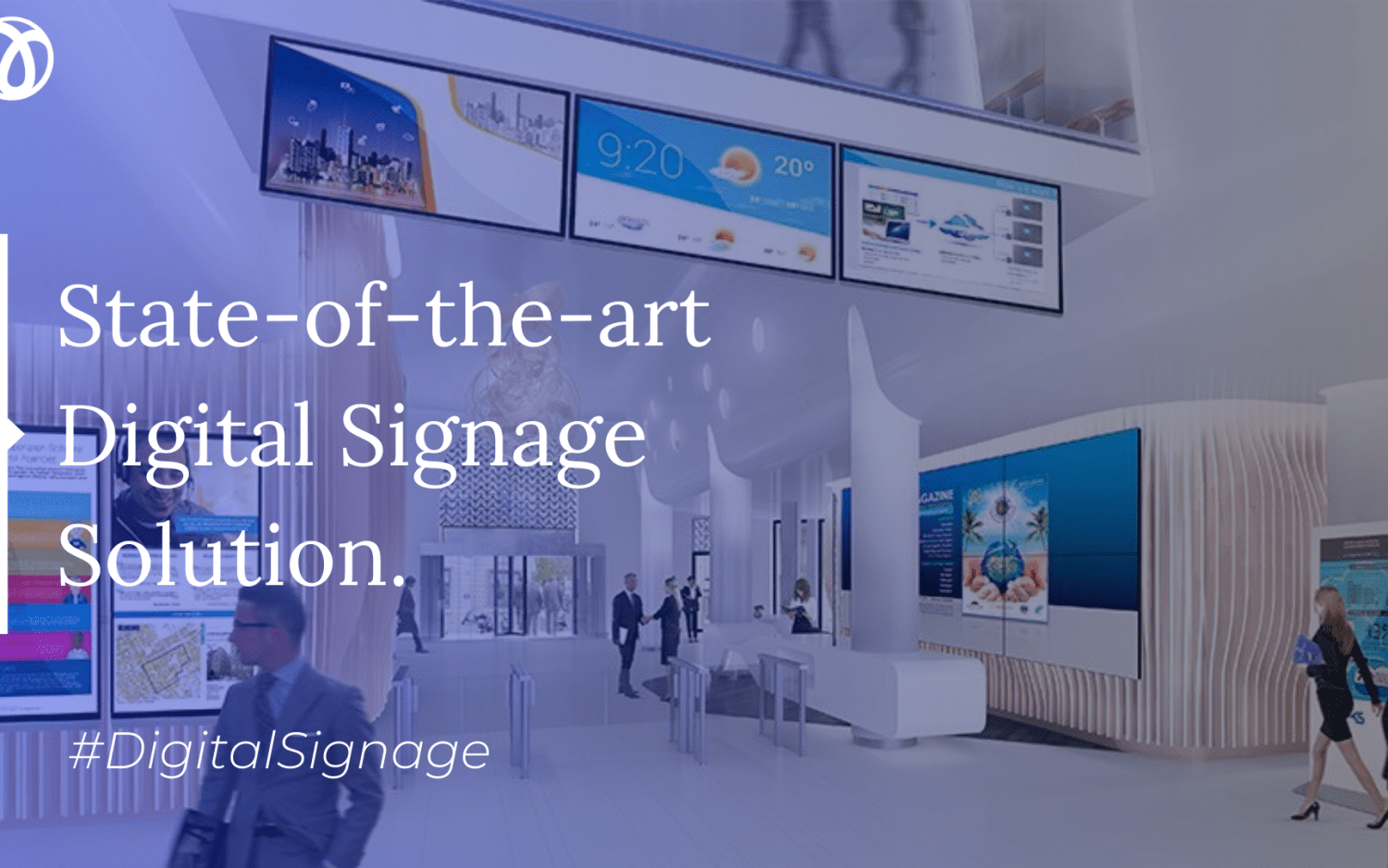If you’ve ever been to an airport or, indeed any establishment with heavy footfall, you will have come across digital signage of some sort. Utilizing technologies like LCD, LED, or projection, digital signages are used to display content like digital images, videos, media, or information.
Digital signages are types of electronic signages that can offer businesses the flexibility to communicate easily with their customers or employees with enriched content. They are commonly found in public spaces, stadiums, retail stores, hotels, banks, museums, transportation systems, and corporate buildings, etc.Today, digital signages have become a key part of the digital transformation strategy for advertising and marketing. Some common uses of digital signages include –
- Marketing
- Wayfinding
- Exhibitions
- Outdoor advertising
- Featuring products, items, or services
- Entertaining or informing customers
- Communicating brand values
- Creating revenue
- Promoting an event
Thanks to the benefits they offer, digital signages are extremely popular. As per the research firm Markets And Markets, the overall global digital signage market is expected to reach USD 29.63 billion by the year 2024, growing at a compounded annual growth rate of 7.3%.When it comes to a modern digital signage solution, the following are the ‘Must-Haves’ for it –
Multi-location installation with central monitoring
In several sectors like Retail and Banking, it’s important to provide messaging consistency across all locations where customer interactions happen. Modern digital signage solution must be able to sync system displays so that the same content can be displayed across each screen irrespective of the location or city.
Having a central monitoring system or the ‘hub’ can make the digital signage system feel more cohesive and connected. Moreover, it allows modifying the content at any time to roll out tailored messages instantly across locations.
Multi-layout and multi-content display
The digital signage should not make you feel limited in terms of what or how you can display your content. Versatility is a key feature for any modern digital signage solution to have. To grab the attention of the audience, digital signage must be able to display different types of content like video, image, or text. The device should also be capable of handling multiple media formats like JPG, PNG, MP4, HTML5, 4K, etc.
The display should also offer multiple layout combinations to enhance the visual experience. This is important in keeping the display interesting and the audience engaged as well as informed.
Ease of software use
The ease of using digital signage software is among the most important features because having difficult-to-use software can be time draining for the marketing and facility admin folks tasked with getting them up and running.
The software experience should be easy and quick. It should be easy to implement for users at different levels.
Cross-platform compatibility
Modern digital signages should be cross-platform compatible with the ability to display relevant output media, irrespective of the operating system.
Having a platform-independent HTML5 client can ensure that the signage displays the same content over large, small, or touch-enabled displays.
Content scheduling
A big benefit of digital signage over a static one is its ability to schedule content delivery. Having content scheduling functionality can ensure that businesses display the right message at the right time and embrace dynamism and flexibility.
Modern signage software should allow comprehensive scheduling for creating multiple schedules. A good digital signage should allow you to set predetermined rules for keywords, date, time, etc. Features like rule-based or keyword-based scheduling can allow users to automatically deliver content.
These rules then help generate multiple dynamic playlists that get updated automatically. This can help reduce the workload of people and simplify the process for business users.
Monitoring and reporting
The ability to monitor the health of the digital signage network and report any errors is essential for keeping the network working optimally at all times.
This also allows businesses to see which kind of content is performing best to optimize the messaging and content schedule.
Network reporting can also offer detailed information on content assets, content playback, and user management.
Application integration for real-time data
Along with video or image content, businesses may also want to display specific real-time information like weather, temperature, or time. This can be done by integrating specific apps into digital signage.
Having app integration functionality can also enable users to view the posts from the company’s social media accounts like Twitter or Facebook. When looking for a modern digital signage solution, this feature should always be considered today.
Security
Since the digital displays are usually put in public spaces, they can be, unfortunately, prone to hacking. Along with physically securing the display, it’s also important to keep the software secure.
The software should have protocols in place to prevent unauthorized individuals from accessing the signage. For business-critical software, standards like SOC 1 and SOC 2 are considered normal.
Hyper localization
Hyperlocal marketing focuses on targeting prospective customers in a very specific and geographically-restricted area. It helps in distributing content at the right time and in the right place. Displaying hyper-local content on digital signage can offer excellent opportunities for local marketing, should that be the desired outcome for the company.
Software updates
Before getting a digital display, one must ensure that the device has the capability of receiving regular software updates from the company. Since the signage will be prominently visible, you must ensure that it turns out to be a good investment over the long-term.
Software updates can not only help your display look updated but also help you with fixing any software bugs. Moreover, software updates are important for fortifying the device’s security.
Scalability
While signage might work perfectly well for smaller networks, it may cause problems while scaling up or while working in a network of say 100 or 1000 devices. In that case, you may need to choose a different signage solution.
But moving from one platform to another every time your business outgrows a solution makes for a lot of additional work. This can be avoided by choosing digital signages that can be easily scaled up.
Conclusion
Digital signage has become an essential element in a range of business situations. Indeed, it has become a critical requirement for businesses that want to connect with their customers. Under those circumstances, it’s essential to know the features that you must have before investing in a digital signage solution.
Resurgent offers unique and modern digital signage solutions that serve all your business needs. To get a demo, get in touch with us.



